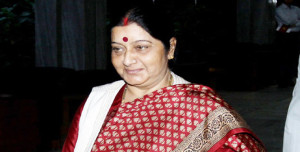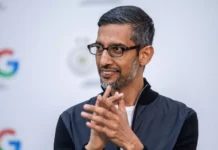 UNITED NATIONS: As the world faces growing challenges of terrorism, the ideals of Mahatma Gandhi have become all the more pertinent and the Gandhian way is a “real, live option” to confront the global challenges, India has said here as the UN commemorated his 145th birth anniversary.
UNITED NATIONS: As the world faces growing challenges of terrorism, the ideals of Mahatma Gandhi have become all the more pertinent and the Gandhian way is a “real, live option” to confront the global challenges, India has said here as the UN commemorated his 145th birth anniversary.
“The question to ask is not whether Mahatma Gandhi is relevant or not. The real issue is whether we have the courage and strength of mind to follow in his footsteps, whether we are prepared to live our lives by what he preached and most importantly, practiced,” External Affairs Minister Sushma Swaraj said yesterday.
She was speaking on the occasion of the ‘International Day of Non-violence’ which is commemorated annually by the UN on Gandhi’s birthday.
Swaraj said that instead of diminishing in relevance, Mahatma Gandhi has “actually become all the more pertinent” in the 21st century. “Whichever the challenge we confront, you can be sure that the Gandhian way is a real, live option, an option that informs and illuminates,” she said.
Noting that the world of today is vastly different from the world that Gandhi lived in, Swaraj however said new threats to peace, harmony and stability have emerged.
“Today, we face the challenge posed by continuing confrontation in the name of religious fanaticism and ethnicity. At its worst, there is terrorism, which inflicts untold suffering on innocent women, men and children.”
With the political discourse centered on a global war on terror, countering violence with even more violence does not provide a durable solution.
“If democracies are going to wage a war against terrorism, the measures that are adopted, should be consistent with and not contrary to the values of democracy. This is in keeping with the Gandhian consonance of ends and means,” she said.
During the commemorative event, attended by a large number of UN ambassadors, diplomats and young children, an audio-visual on Gandhi’s life and journey was played. UN Deputy Secretary-General Jan Eliasson urged the international community to reaffirm the power and potential of bringing about change through peaceful means, following in the footsteps of Mahatma Gandhi.
“The response to violence is all too often more violence when, in fact, reconciliation and dialogue is needed,” Eliasson said in a special event for the occasion organized by the Indian mission to the UN here yesterday.
India’s External Affairs Minister Sushma Swaraj presided over the commemorative event.
He called for embracing the fundamental values embodied by Gandhi: passion, compassion, and belief in the dignity and equal worth of all human beings.
The International Day, marked annually on Gandhi’s birthday, celebrates his non-violent philosophy and tactics have been adopted by leaders around the world.
It was established by the General Assembly as an occasion to “disseminate the message of non-violence, including through education and public awareness,” and has been observed annually since 2007.
Gandhi’s historic “Salt March” against unfair colonial taxation, and his other non-violent resistance inspired change in countries from the Georgia to South Africa, Northern Ireland and the United States, Eliasson said.
This year’s event is particularly relevant given the resurgence of exceptionalism and sectarianism in parts of the world, the senior UN official said.
He added that many minorities find themselves under attack, and civilizations are being displaced as conflicts force them to flee.
“We must reject violence as the futile and default means to bring about change,” Eliasson said.
“We must embrace the path to non-violence and peaceful settlements as the road to sustainable and equitable transformations of societies.” -PTI






